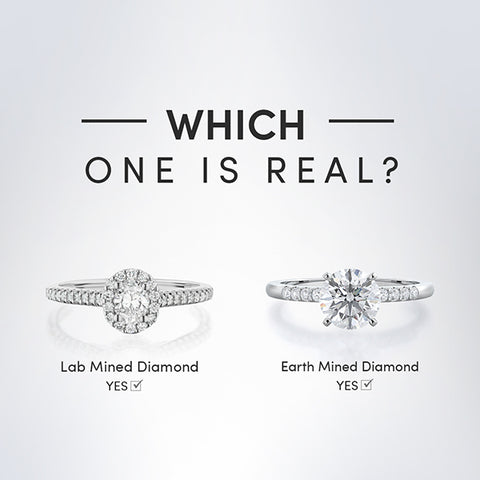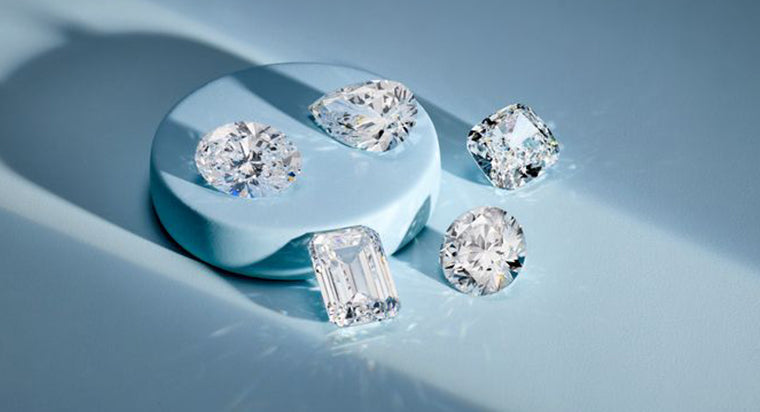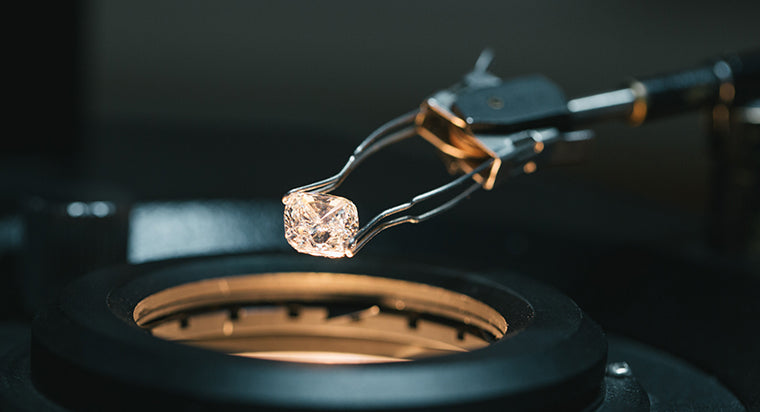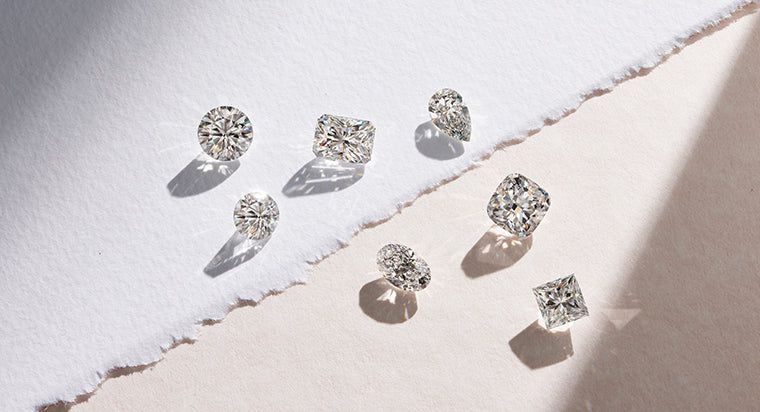Lab Diamonds vs. Real Diamonds

The name diamond originates from the Greek “adamas” meaning unconquerable. The earliest diamonds date back to the 4th century BC. These earliest diamonds were likely to travel the Silk Road between India and China and were used for anything from cutting to personal adornment. Diamonds were also fashioned into talismans for warding off evil in many cultures. Though modern ideas regarding diamonds have lost some of their spiritual significance, they have lost none of their sparkle.
Often associated with health, strength, and love, diamonds are the gemstone most often chosen for engagement rings. Diamonds were set into rings to signify a couple's commitment to one another when in 1215 Pope Innocent established a waiting period between when a couple announced their betrothal and their marriage ceremony. Though diamonds had been given as gifts for centuries, the first diamond engagement ring wasn't presented until 1477 when the Archduke Maximilian of Austria presented a diamond ring to his betrothed, Mary of Burgundy. Despite the passage of time and changes in tastes and style, the diamond remains the most popular gemstone for an engagement ring.
Whether you believe a diamond engagement ring is a dazzling reflection of your romantic love, or see investing in a lovely set of diamond earrings as a meaningful investment in your future, diamonds make a lasting impression. If you find yourself looking at the purchase of diamond jewelry, you will quickly find conflicting information regarding lab-created diamonds and real or mined diamonds. Though historically diamonds required a great deal of energy to extract from the earth, you now have the happy option of determining whether you select a mined diamond or one that has been created in a lab. Many people avoid the purchase of mined diamonds due to the ethics surrounding how they have been extracted from the earth.
What is the Truth about Lab Diamonds vs Real Diamonds?

First and foremost, it should be understood that lab diamonds are real diamonds. The real difference between “real” and created diamonds is the way in which they are grown. While a mined diamond spends eons underground being exposed to heat and pressure, a lab-created diamond can be grown over the course of weeks.
- Chemical composition: Though both “real” and lab diamonds are carbon-based, there may be a small chemical difference between the makeup of a lab-grown diamond and a natural mined diamond. Natural diamonds will often have a small amount of nitrogen in their chemical makeup. A lab diamond is made without nitrogen.
- Appearance: It is impossible for you to know if you are looking at a real diamond or a lab diamond simply by looking at it. All diamonds, regardless of how they are created, will have some flaws. However, a created diamond will shine as brightly and sparkle as intensely as a similar quality natural diamond. You will need to use special instruments to obtain a close enough look a the diamond to determine how it was created. Luckily all diamonds, both lab-created and earth-mined, are graded so you will know the quality of the diamond you are considering purchasing.
- Durability: The durability and strength of a diamond are the same regardless of how it was created.
- Grading: As we noted above, both lab-created diamonds and natural mined diamonds are graded so that the purchaser can know with scientific certainty the quality of the diamond they are considering. Just like natural diamonds, lab diamonds are graded. This is done, by sending lab diamonds to gem labs that specialize in diamond grading. Each diamond is subjected to testing and is given a grading on the 4C's of cut, clarity, color, and carat. All diamonds are held to the same standards regardless of how they came into being.
FAQs
Should you opt for a lab diamond or a natural diamond?
Are lab diamonds real?
Does a lab diamond look like a real diamond?
Is a lab diamond cheaper than a real diamond?









